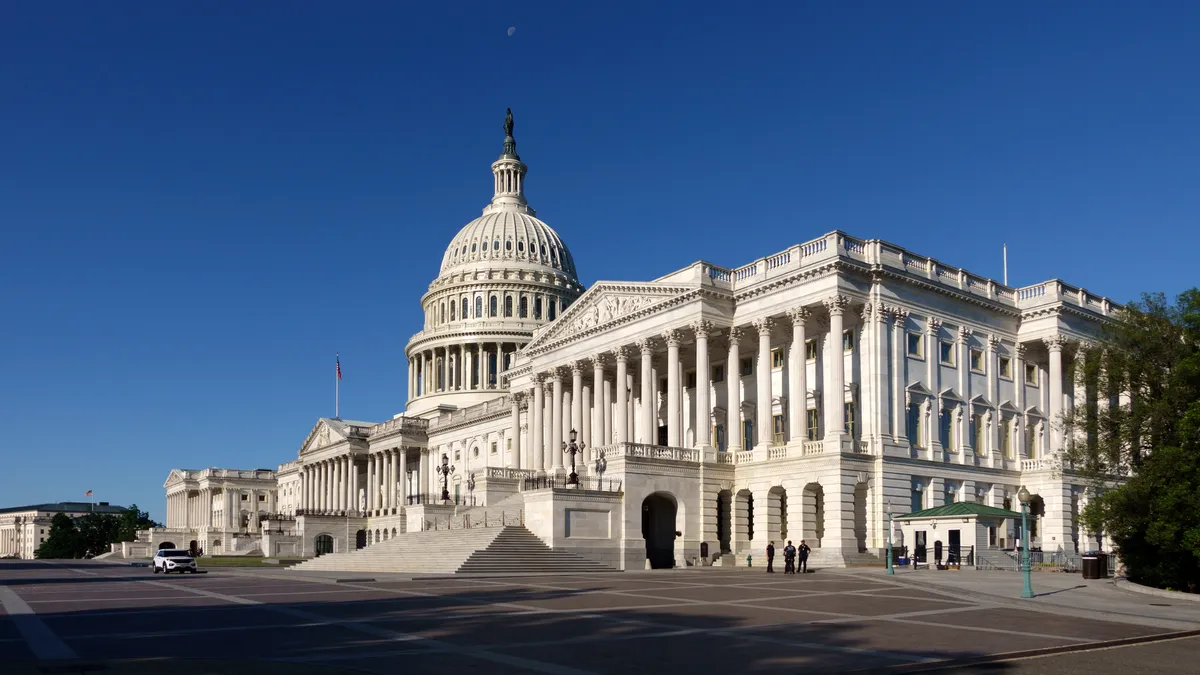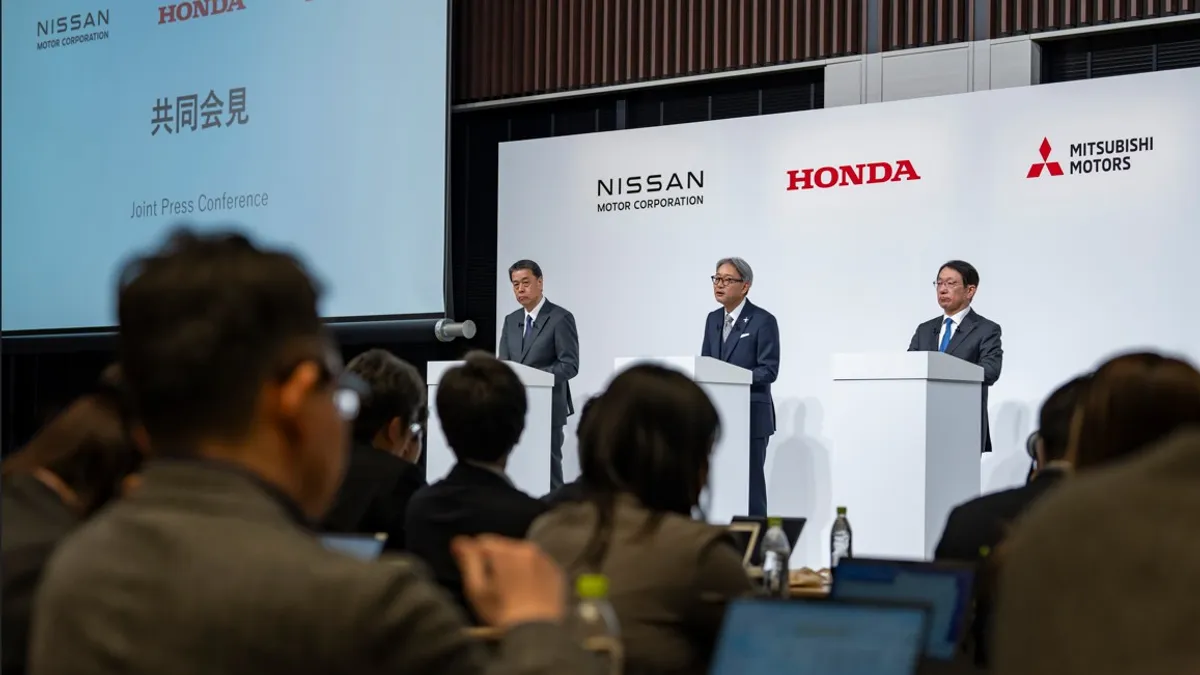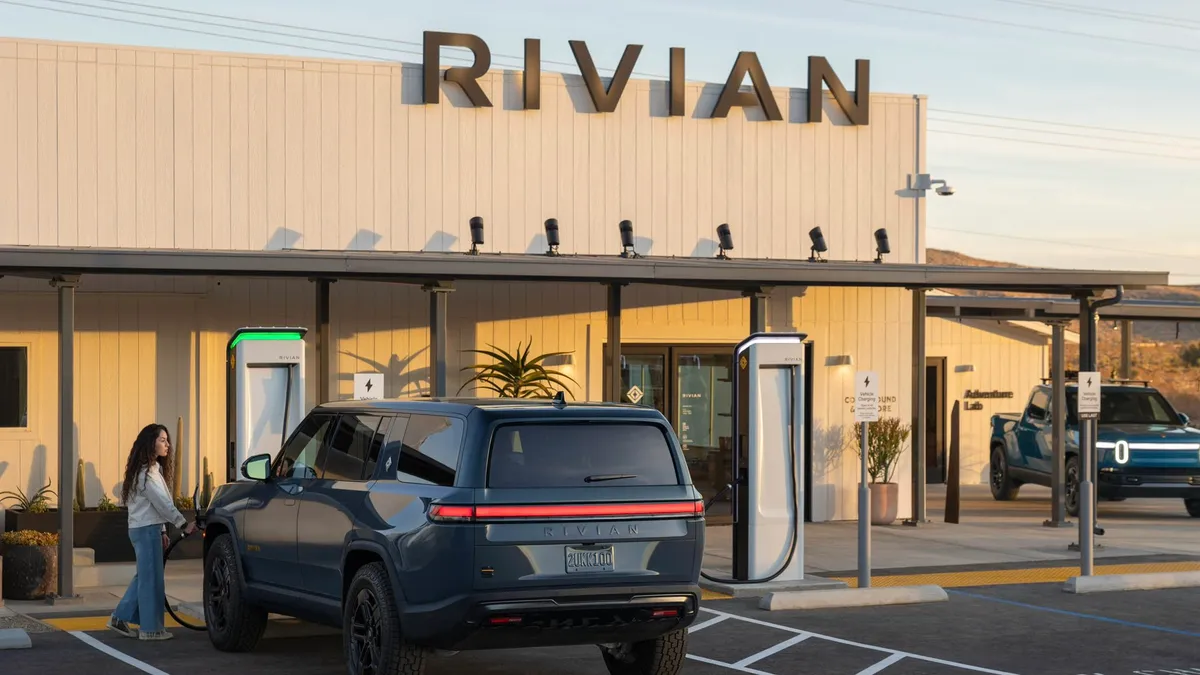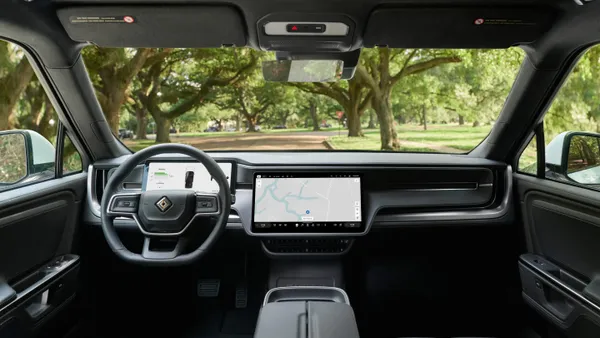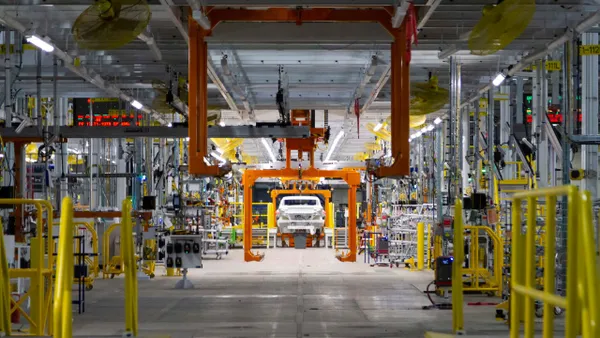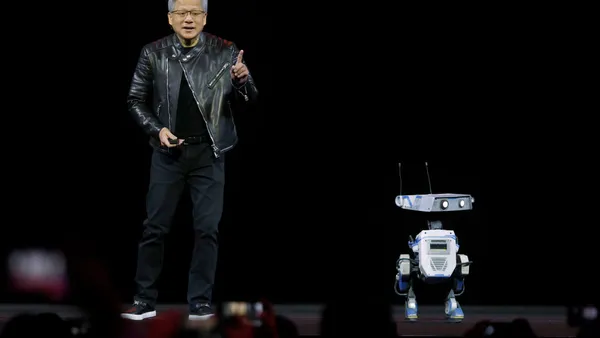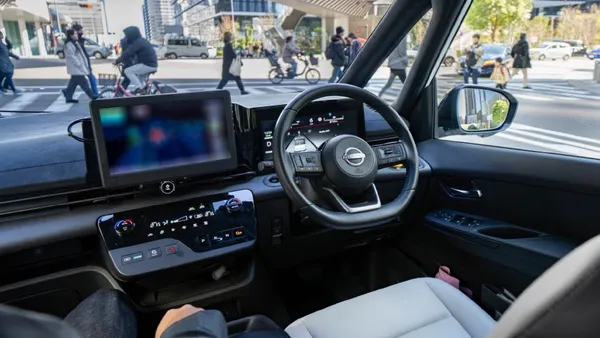Dive Brief:
- As more autonomous robotaxis and self-driving cars appear on city streets, a subcommittee of the House Energy and Commerce Committee is holding a hearing Wednesday to discuss draft legislation aimed at regulating the nascent industry.
- The bills, drafted by Reps. Debbie Dingell, D-Mich. and Bob Latta, R-Ohio, require the Transportation Department to have AV developers submit safety assessments, to develop a rulemaking plan and to update federal motor vehicle safety standards for AVs.
- While the Autonomous Vehicle Industry Association supports legislation to expand testing of AVs, a letter to the House committee signed by 22 organizations urged lawmakers “not to advance legislation that will turn our Nation’s public roadways into private testing grounds and turn the public against this technology.”
Dive Insight:
According to AVIA, self-driving vehicles have racked up more than 44 million autonomous miles on U.S. roads, including miles traveled by ride-hailing and delivery vehicles, trucks and zero-occupancy vehicles. Robotaxis operate in cities including Austin, Texas; Phoenix and San Francisco. Operators including Cruise, Uber and Waymo plan to expand their service territories this year. According to the Insurance Institute for Highway Safety, 3.5 million vehicles capable of autonomous driving under some conditions will be on U.S. roads by 2025, with that number reaching 4.5 million by 2030.
Regulating self-driving vehicles has been largely left to the states under a guidance policy the Transportation Department issued in 2016 and has updated several times, with the most recent update from the Trump administration in January 2021. More than 30 states permit either testing or full deployment of autonomous vehicles on their roads, according to the IIHS.
Latta told Smart Cities Dive in an interview that “testing on the roads and vehicles out there” is necessary to prove that “these [self-driving] cars can be as safe or safer” than human-driven vehicles.
But the proposed bills leave too many decisions to the industry, safety advocates say. In a press conference Tuesday, Cathy Chase, president of Advocates for Highway and Auto Safety, warned that the proposed legislation would “preempt state and local jurisdiction even in the absence of federal promulgation of rulemaking,” leaving AVs completely unregulated during the rulemaking process.
Road safety advocates point to some concerning reports. The advocates’ letter cites a June 10 Washington Post analysis of National Highway Traffic Safety Administration data that found 736 crashes across the U.S. since 2019 involving Tesla vehicles that operate in Autopilot mode. These collisions resulted in 17 deaths and five serious injuries. The IIHS found that many people treat partially automated vehicles as if they are capable of fully self-driving.
Robotaxi operations in San Francisco have come under scrutiny due to incidents where vehicles have blocked traffic and conducted unsafe maneuvers. Lt. Tracy McCray, speaking for the San Francisco Police Officers Association at the press conference, described an incident involving an AV blocking roadway access to the scene during a mass shooting. “We can all applaud advancements in technology, but not at the risk to the safety of the public,” McCray said.
The bills under consideration in the House build on previous legislative proposals by Dingell and Latta. “We want to make sure that the technology that we’re talking about is the technology that the companies not only see today, but down the road,” Latta said.
None of the previously proposed bills have moved forward. When asked about the chances for these new bills, Latta said, “I’m an optimist, but you know, it’s going to take work.”
In opening remarks at the hearing, ranking member Frank Pallone Jr., D-N.J., said that “AVs will not save lives if they do not operate safely and adhere to state and local traffic laws.” He added that he is committed to working together “to find a bipartisan path that promotes the safe, responsible deployment of AVs.”



